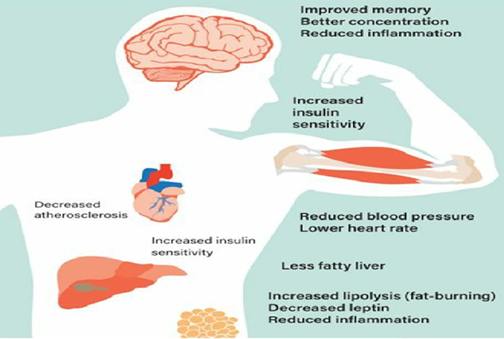Do You Have High Cholesterol? How Fasting Lowers Cholesterol.

Do You Have High Cholesterol? How Fasting Lowers Cholesterol.
The liver produces the vast majority of cholesterol found in the blood.
Eating less cholesterol has almost no effect on the liver’s production.
It may be counterproductive.
As the liver senses less incoming cholesterol, it may simply increase its production.
So why does fasting affect the liver’s production of cholesterol?
As dietary carbohydrates decline, the liver decreases its synthesis of triglycerides since excess carbohydrates are converted to triglycerides, the absence of carbohydrates means fewer triglycerides.
Remember that triglycerides are released from the liver as VLDL, which is the precursor of LDL.
Therefore, reduced VLDL eventually results in lowered LDL.
The only reliable way to reduce LDL levels is to reduce the liver’s production of it.
Studies prove that seventy days of alternate-day fasting could reduce LDL by 25 percent.
This is far more than what can be achieved with almost any other diet and about half of the effect is achieved with a statin medication, one of the most powerful cholesterol-reducing medications available.
Triglyceride levels drop by 30 percent, similar to what can be achieved with a very low carbohydrate diet or medication.
Not bad for an all-natural, cost-free dietary intervention.
Plus, whereas statins carry the risk of diabetes and Alzheimer’s disease, fasting reduces body weight, preserves fat-free mass, and decreases waist circumference.
In addition, fasting preserves HDL, unlike low-fat diets, which tend to decrease both LDL and HDL.
Overall, fasting produces significant improvements in multiple cardiac risk factors.
For people worried about heart attacks and strokes, the question is not “Why are you fasting?” but “Why are you not fasting?”







